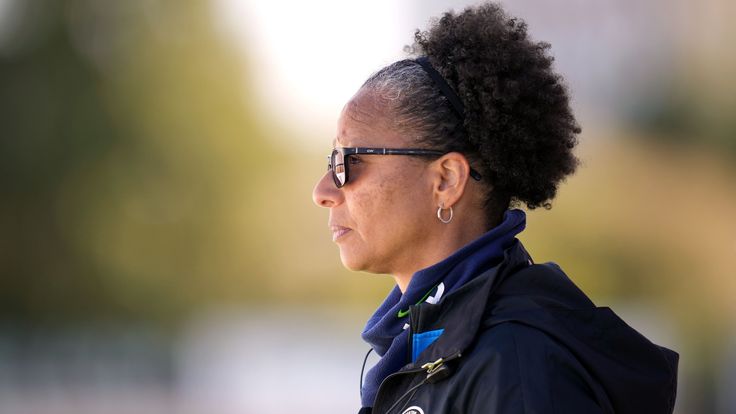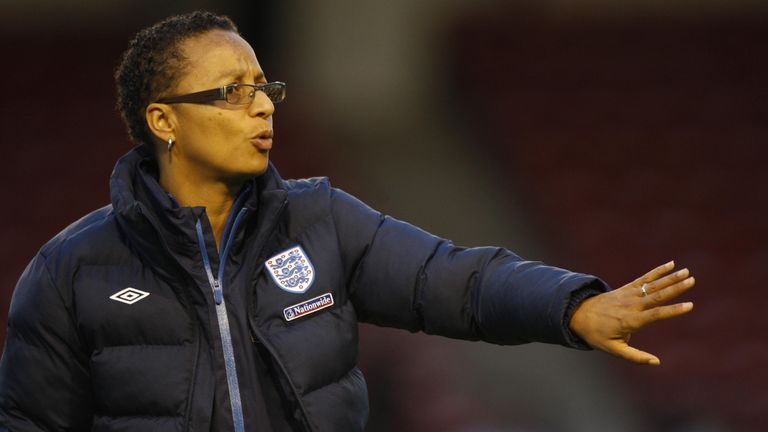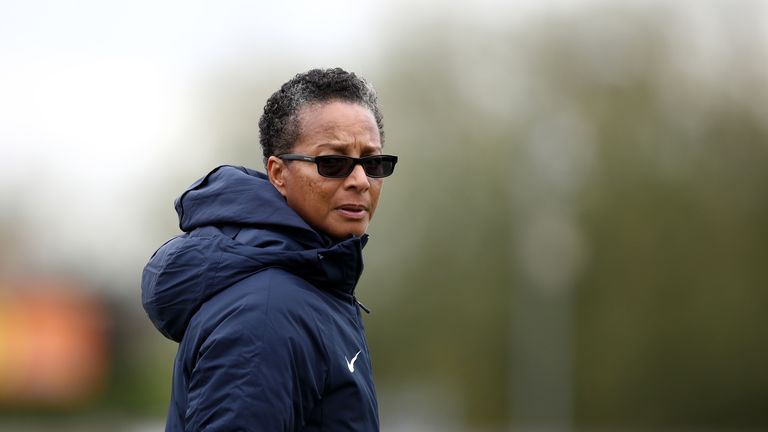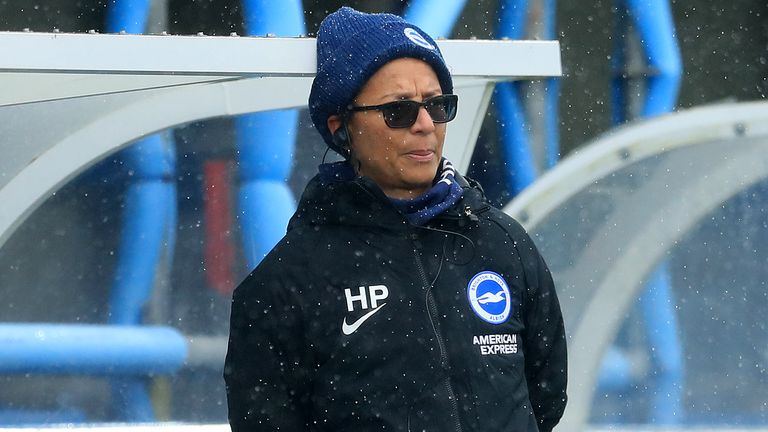Mental Health Awareness Week: Brighton boss Hope Powell reveals her strategy for improving mental health
In our Mental Health of a Football Manager series, Hope Powell speaks about some of her coping mechanisms; "I have to let it out. I let it out and then I try and park it, that's my coping mechanism. And talking it through"

Tuesday 10 May 2022 15:44, UK
As part of Mental Health Awareness Week, Brighton and Hove Albion’s Hope Powell has spoken about her experiences of mental health and wellbeing as a football manager, revealed her coping mechanisms, and how awareness of it has changed since she was a player.
Powell joined Brighton and Hove Albion in 2017 having previously managed the England and Great Britain Olympic women's teams. After an exciting career that has taken her into management, she talks about dealing with the pressures of the job.
She told Sky Sports News: "It's a fantastic job, but it is just a job that I do. And I also recognise that it's important to get away from it and do other things, which I do. I find it quite easy, actually, and always have to be fair.
"It's important to me in the moment. But, you know, there are other things that are more important to me in that moment. So, I choose those moments when I'm away from football. To make, you know, football secondary and everything else is a priority."
In 1998, Powell was appointed as the first full-time national coach for the England Women's team. She was also the first female and youngest England coach.
When asked about how she deals with the highs of winning and the lows of losing, the first-team manager said: "Winning on a Sunday, you come in on a Monday, the environment is very different.
"I think you when you lose, you manage it. I'm not happy losing. I don't like it. I want to win. But then I have to park it. I learn from it, take from it, and then we go again.
- Get Sky Sports | Get a Sky Sports Pass
- Download the Sky Sports App
- Women's Euro 2022: England's group matches
"I think that's really important for your wellbeing. I have to release it as some point. It doesn't mean to say that I don't have a moment. You know, we could have done better etc, but there is a point where I have to let it go."
At just the age of 19, Powell started her coaching qualifications and in 2003 became the first woman to achieve the UEFA Pro Licence - the highest coaching award available.
Powell led England to the quarter-finals of the 2005 European Championship and the final of the 2009 European Championship. As a player, she won 66 caps for England, mainly as an attacking midfielder, scoring 35 goals.
When asked about some of the pressures in the women's game, she said: "We've seen it more and more in the women's game that managers and coaches are being fired, which isn't nice for anybody. I've experienced that, but that is the reality.
- Sam Kerr stunners help Chelsea to WSL title
- How the WSL title race was won and lost in the tightest of races
- WSL: Man City clinch CL spot | Spurs sign off with victory
"And with that comes the pressure, comes the expectation, comes the disappointment. I think you've got to really learn to manage yourself in all of that, and that isn't easy, but that tends to come with experience."
Powell was in charge of the England side for 15 years, leading them to two World Cup tournaments and four European Championships.
When asked how the pressure changes from managing a national side to a club side she said: "Every week in the domestic program, every week is a game. Every week there's pressure to be successful, whereas internationally that pressure is maybe once a month. The biggest pressure internationally is in a tournament. So, there is absolute pressure in both. It's just at different times.
"When I came into domestic football, I felt like I was in a constant tournament because there's a game every week and it was like wow, there was no respite. Internationally, you play a game a month, you deal with that pressure. You've got three weeks to decompress."
Mental Health Awareness Week is an opportunity for people to talk openly about all aspects of mental health and on providing advice and help for wellbeing.
Powell explains how much has changed about awareness, she said: "Years ago, when I was a player or first started on this journey [it was] never spoken about. Not one bit. Not even thought about as a manager that somebody could be struggling for whatever reason. Just never, ever entered the equation.
"But now it is very open, I think what's really great about the game now that you have wellbeing staff that look after both players and staff, mental health, you have mental wellbeing days, everybody really takes notice of it.
"So I can't actually recall what the turning point was and when the turning point was. But it's to a point now where people, players, staff are quite comfortable in saying, 'look, I'm having a bit of a bad time, I need some support, I need some help'.
"And nobody's looked at strangely for admitting something like that, which could be very personal, but everybody's quite comfortable to do that. And I think that's testimony to where the game's at now".





